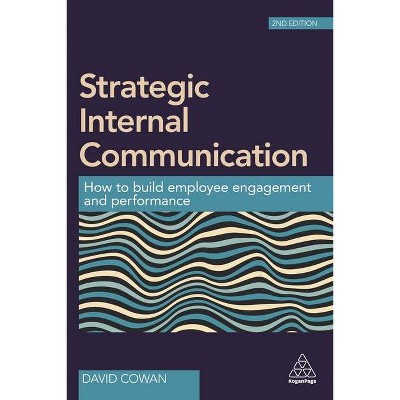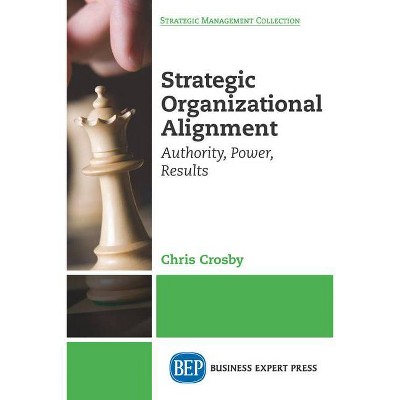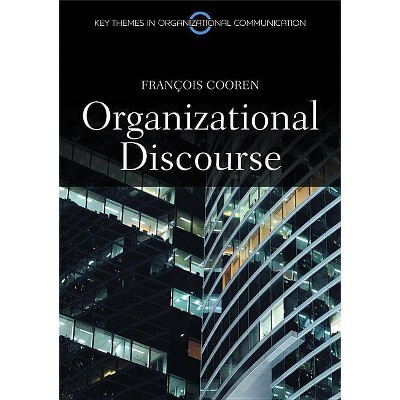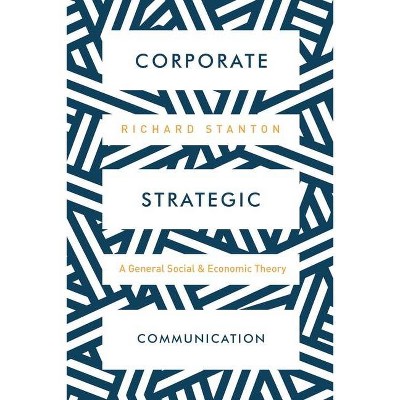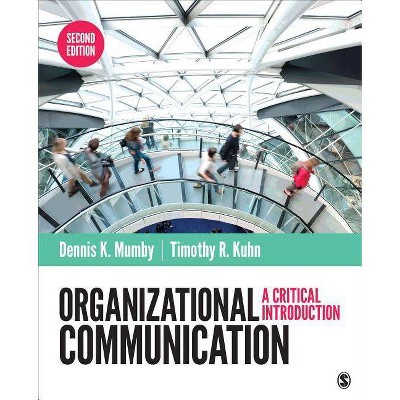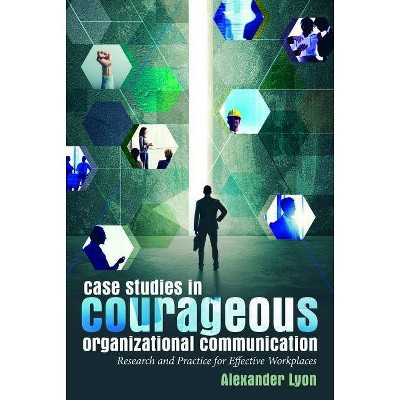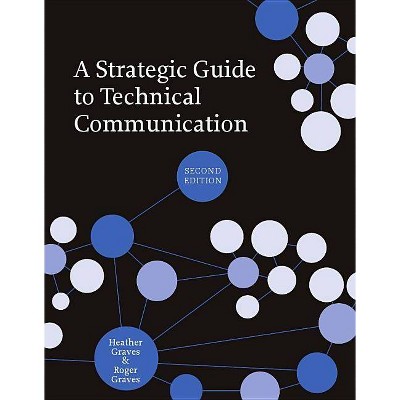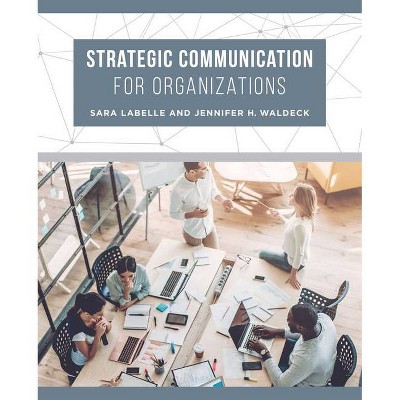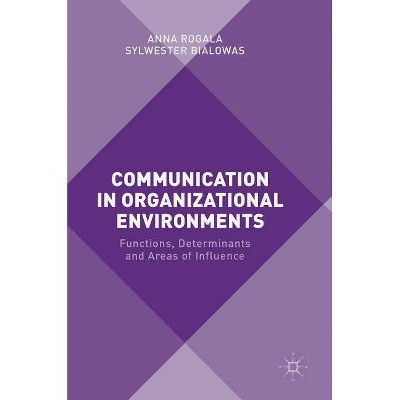Strategic Organizational Communication - 7th Edition by Charles Conrad (Paperback)
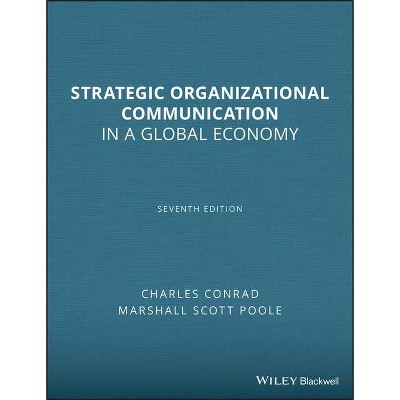
Similar Products
Products of same category from the store
AllProduct info
<p/><br></br><p><b> About the Book </b></p></br></br>Machine generated contents note: Unit I: Underlying Concepts. 1. Strategic Organizational Communication. 2. Keys to Strategic Organizational Communication. Unit II: Strategies of Organizing. 3. Traditional Strategies of Organizing. 4. Relational Strategies of Organizing. 5. Cultural Strategies of Organizing. 6. Network Strategies of Organizing. Postscript to Unit II: Contingency Perspective on Organizing Strategies. Unit III: Challenges in the 21st Century. 7. Communication, Power, and Politics in Organizations. 8. Communication, Decision Making, and Conflict in Organizations. 9. Communciation and Organizational Change. 10. Communication and Diverse Workplaces. 11. Communication, Globalization, and Organizations. 12. Communication, Ethics, and Organizational Rhetoric. Postscript to Unit III. Epilogue.<p/><br></br><p><b> Book Synopsis </b></p></br></br>Surveying a wide variety of disciplines, this fully-revised 7th edition offers a sophisticated and engaging treatment of the rapidly expanding field of organizational communication <ul> <li>Places organizations and organizational communication within a broader social, economic, and cultural context</li> <li>Applies a global perspective throughout, including thoughtful consideration of non-Western forms of leadership, as well as global economic contexts</li> <li>Offers a level of sophistication and integration of ideas from a variety of disciplines that makes this treatment definitive</li> </ul> <p> Updated in the seventh edition: </p> <ul> <li>Coverage of recent events and their ethical dimensions, including the bank crisis and bailouts in the US and UK <br /></li> <li>Offers a nuanced, in-depth discussion of technology, and a new chapter on organizational change</li> <li>Includes new and revised case studies for a fresh view on perennial topics, incorporating a global focus throughout</li> <li>Online Instructors' Manual, including sample syllabi, tips for using the case studies, test questions, and supplemental case studies </li> </ul><p/><br></br><p><b> From the Back Cover </b></p></br></br><p><b></b><b><i>Strategic Organizational Communication</i></b> <b>has been truly revitalized with its comprehensive coverage of organizational issues within the communication community. Enhanced with new material on such issues as globalization, ethics, and change, the combination of in-depth reporting and pointed cases will provide students with useful, relevant insight into the complexities of organizational life.</b></br> <b><i>Cynthia Hardy, University of Melbourne</i></b> <p><b>Conrad and Poole have maintained the solid core of critical analysis that has been the hallmark of this book, while thoroughly updating the cases and issues in the seventh edition. Bravo!</b></br> <b><i>James A. Anderson, University of Utah</i></b> <p>Organizations are a key to understanding society's beliefs, values, structures, practices, tensions. People determine the overall strategies they use to operate the societies they live in, though they are largely unaware of the process by which these choices are made. <p>This book shows how any strategy of organization - including its design, system of motivation and control, form of leadership, and relationship to communication technologies - can be harnessed, empowering people to manage these structures, rather than be managed by them. Keeping a sophisticated and approachable style that has made it a standard for over twenty years, <i> Strategic Organizational Communication</i> engages readers in a comprehensive discussion of organizational communication theories. <p>This updated seventh edition includes: <ul> <li>Coverage of recent events and their ethical dimensions, including the bank crisis and bailouts in the US and UK</li> <li>A nuanced, in-depth discussion of technology, and a new chapter on organizational change</li> <li>New and revised case studies for a fresh view on perennial topics, incorporating a global focus throughout</li> <li>Online Instructor's Manual, including sample syllabi, tips for using the case studies, test questions, and supplemental case studies</li> </ul><p/><br></br><p><b> About the Author </b></p></br></br><p><b>Charles Conrad</b> is Professor of Organizational Communication at Texas A&M University. He has received more than a dozen college- and university-level teaching awards, including the National Communication Association's Donald Ecroyd Award. He is the author or editor of nine books, the most recent of which are <i>Organizational Rhetoric</i> (2011) and <i>Global Engineering</i> (2010). <p><b>Marshall Scott</b> Poole is Professor of Communication and Director of the Institute for Computing in the Humanities, Arts, and Social Science at the University of Illinois Urbana-Champaign. He has received several teaching awards and multiple research awards, including the Steven Chaffee Lifetime Productivity Award from the International Communication Association. He is the author or editor of eleven books, including <i>Working Through Conflict</i> (2008) and <i>Handbook of Organizational Change and Innovation</i> (2004).
Price History
Price Archive shows prices from various stores, lets you see history and find the cheapest. There is no actual sale on the website. For all support, inquiry and suggestion messagescommunication@pricearchive.us
